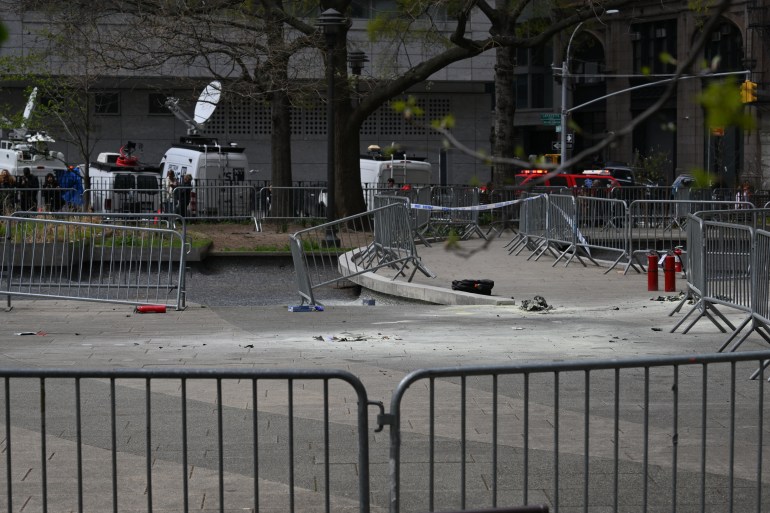” Despite never being charged with a crime, and without due process, Japanese Americans were by force eliminated from their homes and communities and put behind bars, just since of their heritage,” Biden said.For years, numerous Japanese Americans lived in extreme, overcrowded conditions, surrounded by armed guards and barbed-wire fences. They not only lost their homes, services, property and savings but likewise their liberty and fundamental freedoms, he said.Despite the unfair treatment of their community and household members, numerous second-generation Japanese Americans, understood as nisei, volunteered or were drafted to serve in World War II not simply to defeat the enemy but in hopes that a strong efficiency in fight may help to decrease the bias they dealt with in their own country.The all-Japanese American 100th Infantry Battalion and the 442nd Regimental Combat Team became understood as two of the most decorated and distinguished military units in U.S. history.
U.S. President Joe Biden speaks at the White House on Friday.|AFP-JIJI
The U.S. government excused the incarceration and vowed compensation in 1988 under President Ronald Reagan.Biden was sworn in to office last year at a time when hate crimes against Asian Americans were on the rise amid the spread of COVID-19, very first identified in China in late 2019. The administration has taken a series of actions to address bigotry against Asians and others in the country, including by signing into law in May last year a bill aimed at beefing up police action to hate crimes.Proclaiming Saturday a “Day of Remembrance of Japanese American Incarceration During World War II,” Biden gotten in touch with individuals in the nation to honor the wartime oppression against civil liberties and to “commit together to eradicate systemic bigotry to recover generational injury in our communities.” During an online event hosted by the Smithsonian Institutions National Museum of American History and other organizations, Japanese Ambassador to the United States Koji Tomita stated Tokyo will continue to develop ties in between the 2 countries with a “unique emphasis” on the relationship with the Japanese American community.The ambassador also expressed regret that the tragic history is not widely known among Japanese individuals today and promised to promote understanding and understanding on the issue amongst both Americans and Japanese.Former U.S. Secretary of Transportation Norman Mineta, who was sent to the Heart Mountain internment camp in Wyoming with his member of the family, remembered how Japanese immigrants were labeled as “aliens” and Japanese Americans like him as “non-aliens” instead of being called “residents,” as they were forced to leave their homes.Noting that such terms were apparently utilized because it sounded “bad” to be assembling “people,” he said, “I am 90 years old and to this extremely day, because that day in 1942, when I initially became aware of me being thought about a non-alien, I have treasured the word resident.” He stated it is essential to “very clearly search in the rearview mirror on what occurred in the past, not to stay on that problem, however to make sure that our hands are securely set on the guiding wheel” to head toward “the future to ensure that something like this never, ever, takes place once again to any person.”
” Despite never being charged with a criminal offense, and without due procedure, Japanese Americans were by force gotten rid of from their communities and houses and jailed, merely due to the fact that of their heritage,” Biden said.For years, lots of Japanese Americans lived in harsh, overcrowded conditions, surrounded by armed guards and barbed-wire fences. They not only lost their houses, businesses, property and savings but also their liberty and essential freedoms, he said.Despite the unfair treatment of their community and household members, numerous second-generation Japanese Americans, understood as nisei, volunteered or were drafted to serve in World War II not simply to beat the enemy however in hopes that a strong performance in battle might assist to lower the prejudice they faced in their own country.The all-Japanese American 100th Infantry Battalion and the 442nd Regimental Combat Team became understood as 2 of the most decorated and distinguished military units in U.S. history.” During an online event hosted by the Smithsonian Institutions National Museum of American History and other organizations, Japanese Ambassador to the United States Koji Tomita stated Tokyo will continue to establish ties in between the two nations with a “special emphasis” on the relationship with the Japanese American community.The ambassador also revealed remorse that the tragic history is not extensively known amongst Japanese individuals today and pledged to promote understanding and understanding on the problem amongst both Americans and Japanese.Former U.S. Secretary of Transportation Norman Mineta, who was sent out to the Heart Mountain internment camp in Wyoming with his household members, remembered how Japanese immigrants were identified as “aliens” and Japanese Americans like him as “non-aliens” instead of being called “residents,” as they were required to leave their homes.Noting that such terms were obviously used due to the fact that it sounded “bad” to be rounding up “citizens,” he stated, “I am 90 years old and to this really day, since that day in 1942, when I initially heard about me being considered a non-alien, I have treasured the word citizen.
In a time of both misinformation and too much information, quality journalism is more vital than ever.By subscribing, you can help us get the story.
SUBSCRIBE NOW
PHOTO GALLERY (CLICK TO ENLARGE).
Source link.















